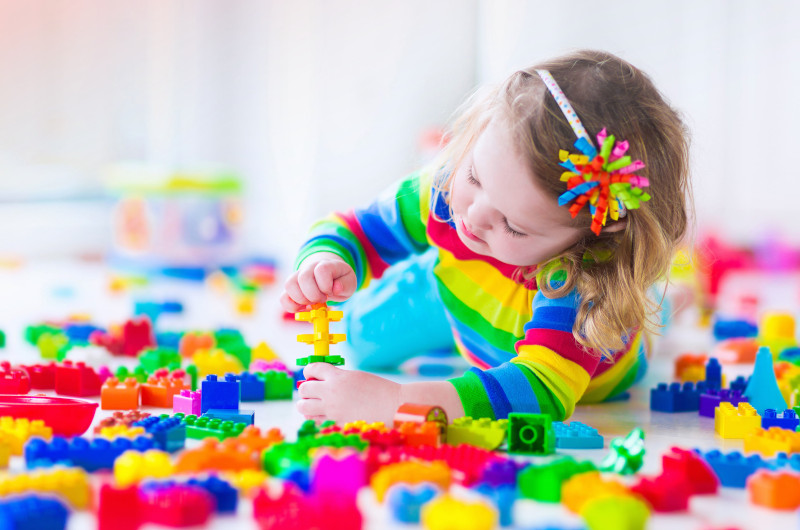Developmental milestones in children
1. What are the domains of milestones?
Developmental of child is a dynamic process. There are daily new neuronal connections in the brain. And each day is an opportunity to learn new things. There are major 5 domains of development.
i.Gross motor ii.Fine motor iii.Language iv. Social v.Cognitive
2. What are motor milestones?
Motor milestones is where a child learns to use hands and legs to sit,walk,run,holdingobjects,eating by self etc. It is further divided into gross motor and fine motor milestones.
Gross motor milestones means learning to use larger joints eg knee,ankle, elbow joints to sit,walk,run. Normally child learns to hold the neck at 3-4 mths, rolls over in 5-6mths, sits with support in 6-7 mths, sits independently 8-9mths, walks with support 10-12 mths, walks without support 12 to 15mths.
Fine motor skills uses smaller joints of hands eg holding a toy, using pencil etc. Normally at 2-4 mths hands will be open without fisting, grasping objects at 3-4mths with fingers in midline, reaching to objects at 5-6mths, pick objects with 3 fingers at 9mths, picks with 2 fingers at 12mths, can scribble at paper at 15mths etc.
3. What is language/speech milestone?
The normal expected speech milestones are as follows:
- Cooing—2 months
- Babbling—5-6 months
- Single syllable like “ma”, “da”—8-9 months
- One word other than “dada” and “mama”—12 months
- 10 to 50 words used meaningfully—16–20 months
- Two-word phrases—20–24 months
- Points to at least one body part and to named objects and people on command—20 months
- Vocabulary greater than 200 words—2 years
- Two-word combinations—2 years
- Follows two-part commands—2 years
- Sentences of three to four words—3 years
- Compound and complex sentences—4 years
4. What are social milestones?
Social milestones is the way baby interacts with the parents, relatives and similar age kids. Its the way child communicates with the people around them.
The various social milestones in different age groups are:
- 2mths: Eye contact and smiles back.
- 3-4mths: Laughs out loud,displeasure when social contact is broken
- 7mths: Prefers mother, enjoys mirror, responds to change in emotional content of social contact.
- 9-10mths: Responds to sound of name,plays peek-a-boo,waves bye bye
- 12mths: Plays simple ball game, makes body adjustment while dressing
- 15mths: Indicates desires, points to object of desire, Hugs parents
- 18mths(1.5yrs): Tries to feed self, indicates wet diaper, Kisses near ones
- 24mths(2yrs): Can eat with spoon, helps to undress, listens to stories when shown pictures.
- 30mths(2.5yrs): Pretend plays(likes imaginative plays), wants to play with other kids, washes hands
- 36mths(3yrs): Helps in dressing, plays games with other kids, likes to socialise with other kids
- 48mths(4yrs): Plays with several children with role playing,Goes to toilet alone, Can tell stories
- 60mths(5yrs): Can dress and undress, ask question about meaning of words, role playing in domestic works
5.Why are milestones important?
Every child is expected to learn in different aspects of developmental domains according to the age. It gives a overall idea how a child is growing. Any child not developing in one or other domains points towards a particular developmental or neurological disorder.
Eg: Child with delayed motor milestones with normal language and social milestones might be suffering from underlying neuromuscular disorder(i.e disorder of muscle and nerve).
However if social and language milestones are only affected then it could point towards autism, developmental language disorder, social communication disorder etc.
Child with brain disorder like cerebral palsy may have delay in all the domains of milestones.
6.Which babies needs regular developmental follow up?
These are called high risk babies, who needs to be on regular follow up to identify any deviation from the usual expected developmental curve.
Following babies needs regular developmental follow up:
- Newborns born prematurely(before completing 9mths)
- Newborns who didn’t cried at birth/birth asphyxia
- Newborns who had low blood sugar(hypoglycemia)
- Newborns who has seizure/convulsions
- Newborns with high jaundice(bilirubin >20mg/dl)
- Newborns with bleed in the brain(IVH/ICH)
- Newborns with meningitis
- Newborns with severe infection/sepsis
- Newborns who were sick and ventilated
7.How does regular follow up help the baby?
Regular follow up ensures to keep track of the expected developmental milestones. If any deviance from the usual curve is noted, we may need to intervene doing investigation to find the cause. These babies will be started on early intervention therapy. Early intervention provides more than usual stimulus and support for babies to learn new things.










Leave a Reply